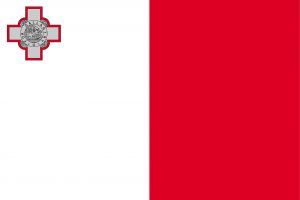Language/Maltese/Grammar/Personal-Pronouns
| ◀️ Gender and Plurals — Previous Lesson | Next Lesson — Possessive Pronouns ▶️ |
Maltese personal pronouns are an essential part of the language. Knowing how to use them is crucial when communicating in Maltese.
In this lesson, we will learn about Maltese personal pronouns and how to use them in sentences. We will also cover their different forms and when to use each of them.
What are Personal Pronouns?
Personal pronouns are words used to replace or refer to a person or thing mentioned in a sentence. They are an essential part of speech and are used in almost every sentence in the Maltese language.
In Maltese, personal pronouns are divided into three categories:
- Subject pronouns
- Object pronouns
- Possessive pronouns
In this lesson, we will mainly focus on subject and object pronouns. Possessive pronouns will be covered in a separate lesson.
Subject Pronouns
Subject pronouns are used as the subject of a sentence. They are usually found at the beginning of a sentence and are used to identify the person or thing that is performing the action.
In Maltese, subject pronouns are:
| Maltese | Pronunciation | English |
|---|---|---|
| Jien | /jjen/ | I |
| Int | /int/ | You (singular) |
| Huwa | /huwɐ/ | He |
| Hi | /hi/ | She |
| Aħna | /ɐː.hnɐ/ | We |
| Intom | /in.tɔm/ | You (plural) |
| Huma | /ħu.mɐ/ | They |
For example:
- Jien nitħaddet bil-Malti. (I speak Maltese.)
- Aħna lesti. (We are ready.)
- Huma jmorru sa'ċ-Ċiċeru. (They are going to Cikera.)
Note that, in Maltese, the third-person singular subject pronoun does not distinguish between genders. The same pronoun, "huwa," is used for both male and female.
Object pronouns
Object pronouns are used to replace the object of a sentence. They are usually found after the verb and replace the noun that was the object of the sentence.
In Maltese, the object pronouns are:
| Maltese | Pronunciation | English |
|---|---|---|
| Ini / Nixtieq | /i.ni/ /niʃ.tjɛk/ | Me / I want |
| Int / Tkellimni | /int/ /tkɛl.lɪm.ni/ | You / Talk to me |
| Hu / Iużani | /hu/ /ju.ʒaː.ni/ | Him / Use him |
| Hi / Iużaha | /hi/ /ju.ʒaː.ha/ | Her / Use her |
| Naf / Nifhem | /naf/ /ni.fʰɛm/ | Us / Understand us |
| Intom / Tifhmuni | /in.tɔm/ /ti.fʰmu.ni/ | You / Understand you (pl.) |
| Huma / Lihom | /ħu.mɐ/ /li.ħɔm/ | Them / To/For them (masc.) |
| Hinnom | /hɪn.nɔm/ | To/For them (fem.) |
For example:
- Inti titkellem Ingliż? Jien nitkellemhu tajjeb. (Do you speak English? I speak it well.)
- Jien inixtieq quddiemek. (I want to be in front of you.)
- Naf li din id-diska hi tagħha. (We know that this disc is hers.)
In Maltese, object pronouns can also be attached to verbs in the form of suffixes. This is called object cliticization, and it is a common feature of the language.
For example:
- Ħerqilni ftit. (Help me a bit.)
- Tidħol bil-kamra tiegħi. (Enter my room.)
Conclusion
In this lesson, we have learned about Maltese personal pronouns, their different forms, and when to use them in sentences. Knowing how to use personal pronouns is essential when communicating in Maltese and will greatly improve your language skills.
Remember to practice using personal pronouns in everyday conversations to reinforce your knowledge and improve your fluency.
Sabiħ. (Great job.)
Other Lessons
- Adjectives
- Past Participle in Maltese
- Definite Articles in Maltese
- Indefinite Articles in Maltese
- Basic Maltese Phrases
- 0 to A1 Course
- Give your Opinion
- Gender and Plurals
- How to Use Be
- Subject Verb Object Order
Sources
| ◀️ Gender and Plurals — Previous Lesson | Next Lesson — Possessive Pronouns ▶️ |

